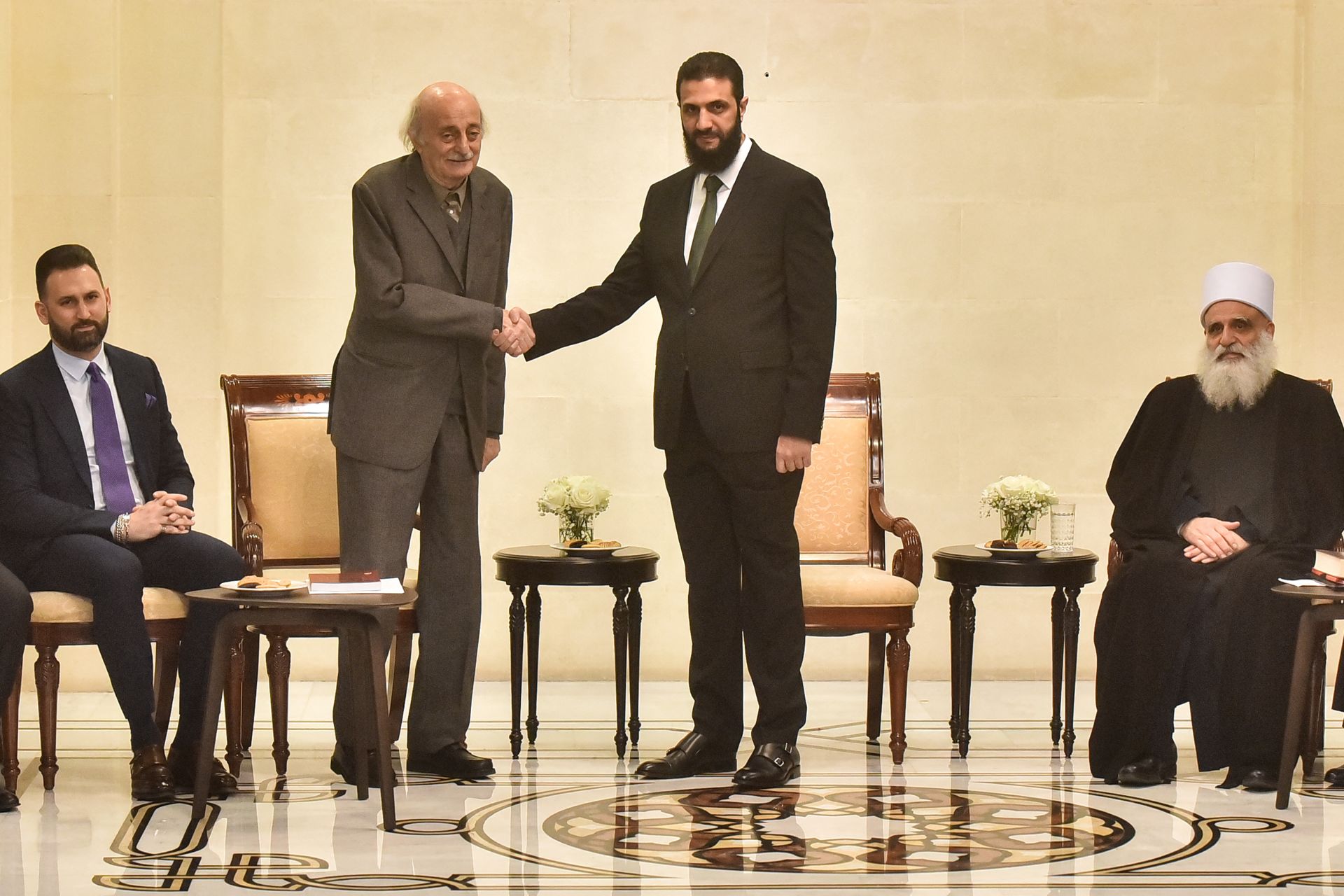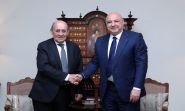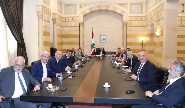
Thirteen years later, former Progressive Socialist Party (PSP) leader Walid Jumblatt made a landmark visit to Damascus, leading a delegation from the "Democratic Gathering" parliamentary bloc. He was accompanied by Sheikh Sami Abi al-Muna, Sheikh Aql of the Druze community, and other Druze elders, to meet with Ahmad al-Sharaa, the General Commander of the Syrian Administration. Jumblatt's visit marked the first by a Lebanese official to Syria following the fall of former Syrian President Bashar al-Assad.
Syria's new leader Ahmed al-Sharaa told Lebanese Druze leaders on Sunday that his country would not negatively interfere in Lebanon and would respect its neighbour's sovereignty.
Syria will no longer exert "negative interference in Lebanon at all -- it respects Lebanon's sovereignty, the unity of its territories, the independence of its decisions and its security stability," Sharaa told visiting Druze chiefs Walid and Taymour Joumblatt.
Walid Joumblatt is the first Lebanese figure to meet Sharaa since his Islamist group Hayat Tahrir al-Sham (HTS) and allied rebel factions launched a lightning offensive last month, seizing Damascus on December 8 and ousting longtime ruler Bashar al-Assad.
Syria "will stay at equal distance from all" in Lebanon, Sharaa added, acknowledging the Assad regime's role in assassinations, including those of former president, Bachir Gemayel, druze leader Kamal Joumblatt, and former Prime minister Rafic Hariri. He also criticized the former Syrian regime for its negative interference in Lebanese affairs and its alliance with Iranian militias, which deepened divisions among Syrians.
"Syria was a source of concern and anxiety, and its interference in Lebanese affairs was negative. The previous regime worked with Iranian militias to sow division among the Syrians," he said.
"Our battle saved the region from a major regional war and possibly a world war," Al-Sharaa asserted, underscoring the significance of recent developments for both nations.
Walid Joumblatt, a fierce critic of Assad and his father Hafez who ruled Syria before him, arrived in Damascus Sunday at the head of a delegation of lawmakers from the parliamentary bloc, lead by his son, Taymour, and religious figures from Lebanon's Druze minority.
He met with Sharaa -- until recently known more widely by his nom de guerre Abu Mohammed al-Jolani -- at the presidential palace, where the new Syrian leader was wearing for the first time a suit and tie.
During the meeting, sheikh Sami Abi al-Muna proposed a unifying initiative, which was broadcast live on national TV. "I take the liberty of proposing the idea of holding a spiritual summit that brings together religious leaders from both countries to promote a sense of reassurance and unity. The people of Syria deserve peace and prosperity because Syria is the beating heart of Arabism," he said.
Joumblatt, in his address, announced that he had submitted a memorandum on behalf of the "Democratic Gathering" regarding Lebanese-Syrian relations.
"We hope that Lebanese-Syrian relations will return to their natural course through diplomatic channels," he said. "We also hope that all those who committed crimes against the Lebanese people will be held accountable and that fair trials will be established for those who committed crimes against the Syrian people." He added, "Some detention centers should be preserved as museums for history, to serve as a reminder of past atrocities."
"We salute the Syrian people for their great victories, and we salute you for the battle you fought to rid yourselves of oppression and tyranny," Joumblatt stated. "The road ahead is long, and we, like you, suffer from Israeli expansionism."
In addressing territorial disputes, Joumblatt reaffirmed his stance that the Shebaa Farms are Syrian. He explained that they fall under the jurisdiction of UN Security Council Resolution 242, which requires Israel to withdraw from territories it occupied during the 1967 war, including the Syrian Golan Heights. Jumblatt noted, however, that if border demarcation efforts between Lebanon and Syria later determine that the Shebaa Farms are Lebanese, he would accept that decision.
The issue of Lebanese detainees held in Syrian prisons was also raised during the discussions. Ahmad al-Sharaa requested that the Lebanese government provide a list of names of those believed to be detained in Syria, so his administration could follow up on the matter.



Comments